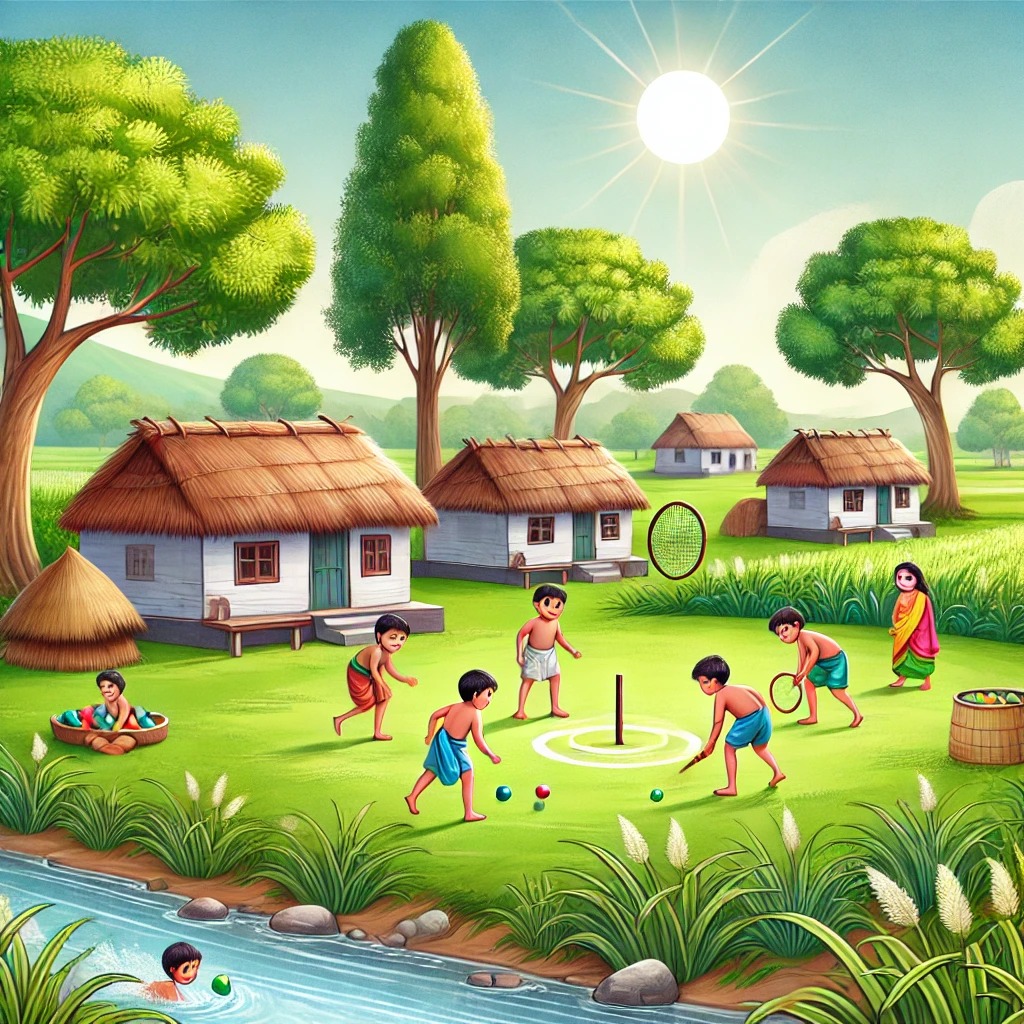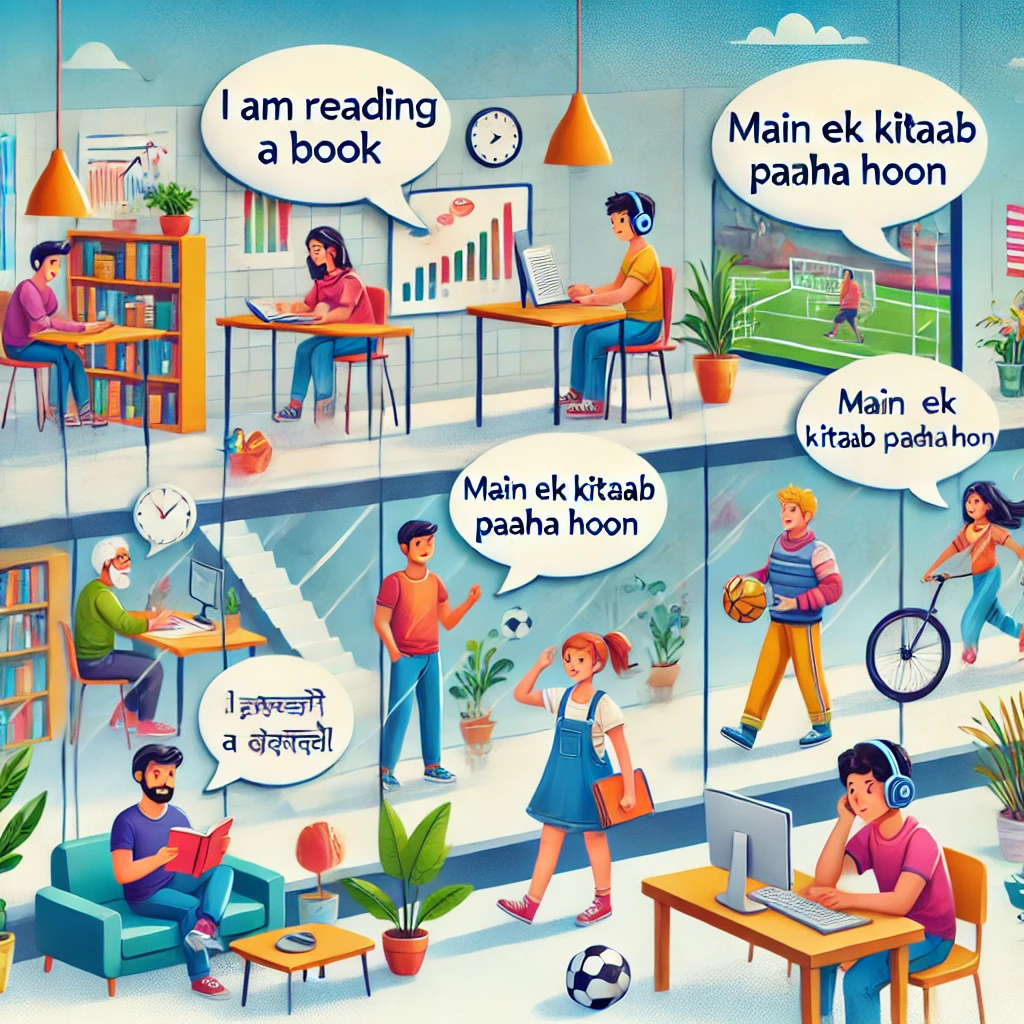Explanation in Hindi:
भूतकाल संतत (Past Perfect Continuous) एक ऐसा काल है जो किसी घटना के पूर्व में चल रही क्रिया को दर्शाता है। यह काल लेखन में एक महत्वपूर्ण भूमिका निभाता है, खासकर कहानी लेखन में। भूतकाल संतत का सही प्रयोग कहानी को जीवंतता प्रदान करता है, पात्रों के भावों को समझने में मदद करता है, और कहानी की गति को नियंत्रित करता है।
जब हम भूतकाल संतत का प्रयोग करते हैं, तो हम पाठक को उस क्षण में ले जाते हैं जहां घटना घटित हो रही थी, और उसके पूर्व की स्थिति का स्पष्ट चित्रण प्रस्तुत करते हैं। इसके उपयोग से पाठक कहानी के पात्रों की मानसिक स्थिति और उनके पूर्व अनुभवों को समझने में सक्षम होते हैं।
कहानी में भूतकाल संतत का प्रयोग पाठक को कहानी के प्रवाह में डूबने और उसके साथ जुड़ने का अवसर प्रदान करता है।
Explanation in English:
The Past Perfect Continuous tense is a powerful tool in the English language, highlighting an ongoing action that took place before a specific point in the past. This tense plays a crucial role in creative writing, particularly storytelling. Using the Past Perfect Continuous effectively breathes life into narratives, helps readers understand characters' emotions, and controls the pace of the story.
When we use the Past Perfect Continuous, we transport the reader to the moment the action occurred, providing a clear picture of the preceding situation. This use allows readers to understand the characters' mental state and their past experiences.
In storytelling, using the Past Perfect Continuous provides readers with an opportunity to immerse themselves in the flow of the narrative and connect with the story.
Examples:
| English | Hindi | Roman Hindi |
|---|---|---|
| She had been waiting for hours before he finally arrived. | वह घंटों से इंतज़ार कर रही थी जब तक कि वह आखिरकार नहीं आया. | vah ghanto se intazar kar rahi thi jab tak ki vah akhirkar nahin aaya. |
| The children had been playing in the park all afternoon. | बच्चे सारी दोपहर से पार्क में खेल रहे थे. | bachche sari dopahar se park mein khel rahe the. |
| The rain had been falling for days, flooding the streets. | बारिश दिनों से हो रही थी, सड़कों पर पानी भर गया था. | barish dino se ho rahi thi, sadkon par pani bhar gaya tha. |
| He had been working on his project for weeks before he finally submitted it. | वह हफ़्तों से अपनी परियोजना पर काम कर रहा था, तभी उसने आखिरकार इसे सबमिट किया. | vah hafton se apni pariyojana par kaam kar raha tha, tabhi usne akhirkar ise submit kiya. |
| She had been learning English for years before she moved to America. | वह अमेरिका जाने से पहले सालों से अंग्रेज़ी सीख रही थी. | vah america jane se pahle saalon se angrezi seekh rahi thi. |
| The car had been driving at high speed before it crashed. | गाड़ी तेज रफ्तार से चल रही थी, तभी यह दुर्घटनाग्रस्त हो गई. | gadi tez raftar se chal rahi thi, tabhi yah durghatnagrast ho gayi. |
| They had been arguing for hours before they finally came to an agreement. | वे घंटों से बहस कर रहे थे, तभी वे आखिरकार एक समझौते पर पहुँचे. | ve ghanto se bahas kar rahe the, tabhi ve akhirkar ek samjhaute par pahunche. |
| The birds had been singing all morning before the storm arrived. | पक्षी सारी सुबह से गा रहे थे, तभी तूफ़ान आया. | pakshi sari subah se ga rahe the, tabhi tufan aaya. |
| The fire had been burning for days before the firefighters managed to put it out. | आग दिनों से जल रही थी, तभी दमकलकर्मी इसे बुझाने में कामयाब हुए. | aag dino se jal rahi thi, tabhi damkal karmi ise bujhane mein kamyab hue. |
| He had been dreaming of this moment for years before he finally achieved it. | वह सालों से इस पल का सपना देख रहा था, तभी वह आखिरकार इसे हासिल कर लिया. | vah saalon se is pal ka sapna dekh raha tha, tabhi vah akhirkar ise hasil kar liya. |




